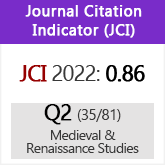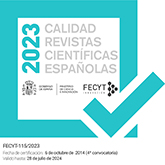Notas sobre el arrendamiento de la alcabala a través de los Cuadernos de 1462 y 1484
DOI:
https://doi.org/10.3989/aem.1992.v22.1090Abstract
I have tried in this work to study the fiscal management of the Royal Finances during the second half of the XVth century through its most significative tax: tax on sales. Therefor, I confronted the two most systematized Tax on Sales Registers during that century, one of 1462 redacted during the reign of Enrique IV and one of 1484, redacted during the reign of the Catholic Kings. Through those texts, we can deduct how the tax on sales was presented, from a juridical point of view, as an indirect tax, since the Royal Finances collected tributary amounts of money from people who wrere in fact not the ones that the law mentioned, which is, through the renting system. This allows us to clarify a double qualification of the financial power: The King, active subject of the tax system. The Farmer, active subject of the tributary relation. The relation established between both is regulated by the Spanish Parliament through Tax on Sales Registers (which brings me to realize a short comparative study of each of them). Though the system supposed clearly a loss for the King in his tributary management of taxes, it articulates nevertheless all the measures that woud allow him to make profitable, as far as economic interests are concerned, the loss of this administrative capacity in managing the tax on sales collection. They were articulated all around what I would call «the previous valorization of the cost of revenues», which is in fact the key line of the article.
Downloads
Download data is not yet available.
Downloads
Published
1992-12-30
How to Cite
Solinís Estallo, M. A. (1992). Notas sobre el arrendamiento de la alcabala a través de los Cuadernos de 1462 y 1484. Anuario De Estudios Medievales, 22(1), 803–820. https://doi.org/10.3989/aem.1992.v22.1090
Issue
Section
Monographies
License
Copyright (c) 2020 Consejo Superior de Investigaciones Científicas (CSIC)

This work is licensed under a Creative Commons Attribution 4.0 International License.
© CSIC. Manuscripts published in both the printed and online versions of this Journal are the property of Consejo Superior de Investigaciones Científicas, and quoting this source is a requirement for any partial or full reproduction.All contents of this electronic edition, except where otherwise noted, are distributed under a “Creative Commons Attribution 4.0 International” (CC BY 4.0) License. You may read here the basic information and the legal text of the license. The indication of the CC BY 4.0 License must be expressly stated in this way when necessary.
Self-archiving in repositories, personal webpages or similar, of any version other than the published by the Editor, is not allowed.














